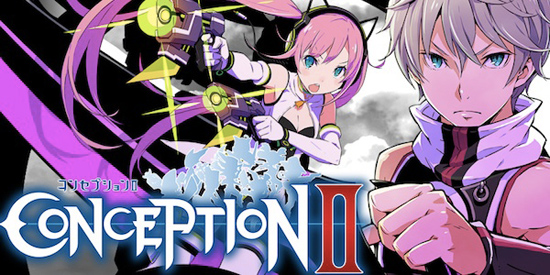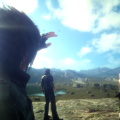Transistor — Red Light

You have to respect what Bastion was going for, even if you didn’t like it. Not only was it Supergiant Games’ first mark on the world, but it was of the earliest indie games which foretold the formidable force small developers would be in the then-near future. That’s despite being published by Warner Bros., though its advertising made it clear its developers were mostly responsible for getting it to digital markets. That success paved the way to Transistor, an action/RPG spiritual successor of sorts to their first tile title. But that’s “of sorts” in the sense that despite its presentation and similar isometric viewpoint, it plays differently enough to stand on its own.
Despite Bastion’s qualities and aforementioned importance, its combat and exploration lacked enough depth to make a serious lasting impression. It’s possible a lack of resources and development experience was to blame, along with the place indie development was in around its release time. Transistor is one title among many which show the strides indie titles have made in such a short time, and it also represents a significant leap over Supergiant’s previous effort in terms of quality.

The game takes place in a dilapidated metropolitan city that was brimming with life mere moments before players take control. It stars a mysterious woman named Red, a singer who’s lost her voice due to a traumatic event. After an early disaster occurs, she picks up a mysterious sword sitting beside her, to fight mysterious entities which have manifested as a result of the perilous events. Encased within the sword is someone Red previously knew, who does all the talking in place of the now-mute protagonist. The sword just happens to be voiced by the same person who played the overall narrator for Bastion (Logan Cunningham), but unlike that game, the few other characters Red runs into are perfectly capable of speaking for themselves.
Story details are one thing; what’s more remarkable is how Transistor tells its story. Supergiant’s story framers understood that game stories don’t need to inundate the player with a plethora of exposition. Instead, it relies on news articles and the Transistor’s narration to establish its world and detail what’s happening behind the scenes. And as a nice touch, though Red can’t talk, she can comment on the news stories she reads on stations she happens upon. That sounds innocuous ostensibly, but through this, players will understand Red’s personality. I’m not giving too much away here, despite this game’s age; but with the way players need to gather every detail and pay the utmost attention to each event, its presentation style really works because it presents the kind of story that could only be told through a video game.

Transistor is also further proof that having a good art and aesthetic style is much more important than production values, and Transistor is far from a slouch in both. Most dialogue sequences occur on the isometric gameplay screen, while others are accompanied by beautiful artwork from Jen Zee.
You’re free to approach battles like Bastion, especially initially, but it won’t take long for you to realize that isn’t the best strategy. Instead of attacking enemies through direct button presses and flailing about, its best when the player stops time to plan their techniques. After the strategy/RPG-like planning, they’ll watch their techniques unfold, potentially stacking some satisfyingly powerful hits. In addition to planning those moves, it’s also enjoyable to make good guesses as to what direction enemies will venture or fly in after those hits land (or miss). All these elements help lend it a sense of depth, proof that Supergiant listened to the criticism regarding Bastion’s too-simple approach.
Enemies aren’t given the luxury of planning their attacks beforehand, but the game was carefully balanced around Red’s use of the system, as enemies can hit her hard and fast. Attack and defense options are limited early on, which helps to ease players into its unique system. Those options grow as more special actions are acquired throughout the game, but they never become overwhelming since most can’t be equipped simultaneously. Those limits will never become hindrances, and if they are, it’s because the player didn’t plan carefully. Each player is unlikely to go through the game with the same loadout, unless they researched specific game-breaking possibilities beforehand. Breaking the game in half is a better strategy for the second playthrough, really.

Transistor’s gameplay system requires some adjustment, especially if you try to approach it like any old action/RPG like me. But there’s a moment where its mechanics will click, and I had a difficult time putting it down afterward. That especially happens when you’re given a plethora of powers and enhancement possibilities, to see which combinations work best on certain formidable enemies. Though there’s no way to trigger random battles during the main quest to experiment with multiple combinations without much risk, bonus rooms serve that purpose.
For players who don’t feel the game is challenging enough, though, Transistor takes a page from Bastion by letting the player place limits on themselves. And they’ve made it even easier to stack battles in your enemies’ favor. In exchange, Red will receive more experience points for winning. They’re best used at points where you know a battle you can handle is coming, though that’s not easy to figure out.
For instance, I managed to stumble into battles with them on plenty of times, which made defeating them an exhilarating struggle. But those battles aren’t insurmountable, and the feeling of satisfaction obtained from winning those battles is worth it. It also helps that Red can’t die unless the player is incredibly careless, though she’ll lose the most powerful node she has equipped for a short time after losing too much health. That limitation helps to maintain the game’s challenge level, especially considering some enemies can land incredibly hard blows.

While the game is short (about six to eight hours for your first time), that’s fine when the experience feels rewarding by the end. It’s also enjoyable to venture through it again with the New Game Plus mode, made even more worthwhile through some difficult bonus quests being available only through this second playthrough.
Transistor’s overarching theme is driven by music, so it had to be good for this game to work. Given the positive praise I’ve lavished upon the game in the above paragraphs, it’s no surprise that I also think highly of its soundtrack. The compositions fit its dreary world, with most levels and scenes being suffused with somber electronic percussions to empower them. That is, unless they’re not being accompanied by one of Red’s vocal tracks, which serve as a grim reminder of a time when she was still capable of singing. As a bonus, she’s capable of humming along with every one of the game’s environmental tracks, as a fitting character trait.
With Transistor, it’s become clear that Supergiant Games has found their groove, enough that it makes Bastion look like it was a stepping stone to something greater. It’s also the latest title to show that games don’t have to be wordy to get their point around (though these have existed since the NES days), which is an especially important lesson for developers whose titles are hamstrung by budget or scope. We’ll see if Supergiant can one-up themselves again with their next project — whenever it arrives.





